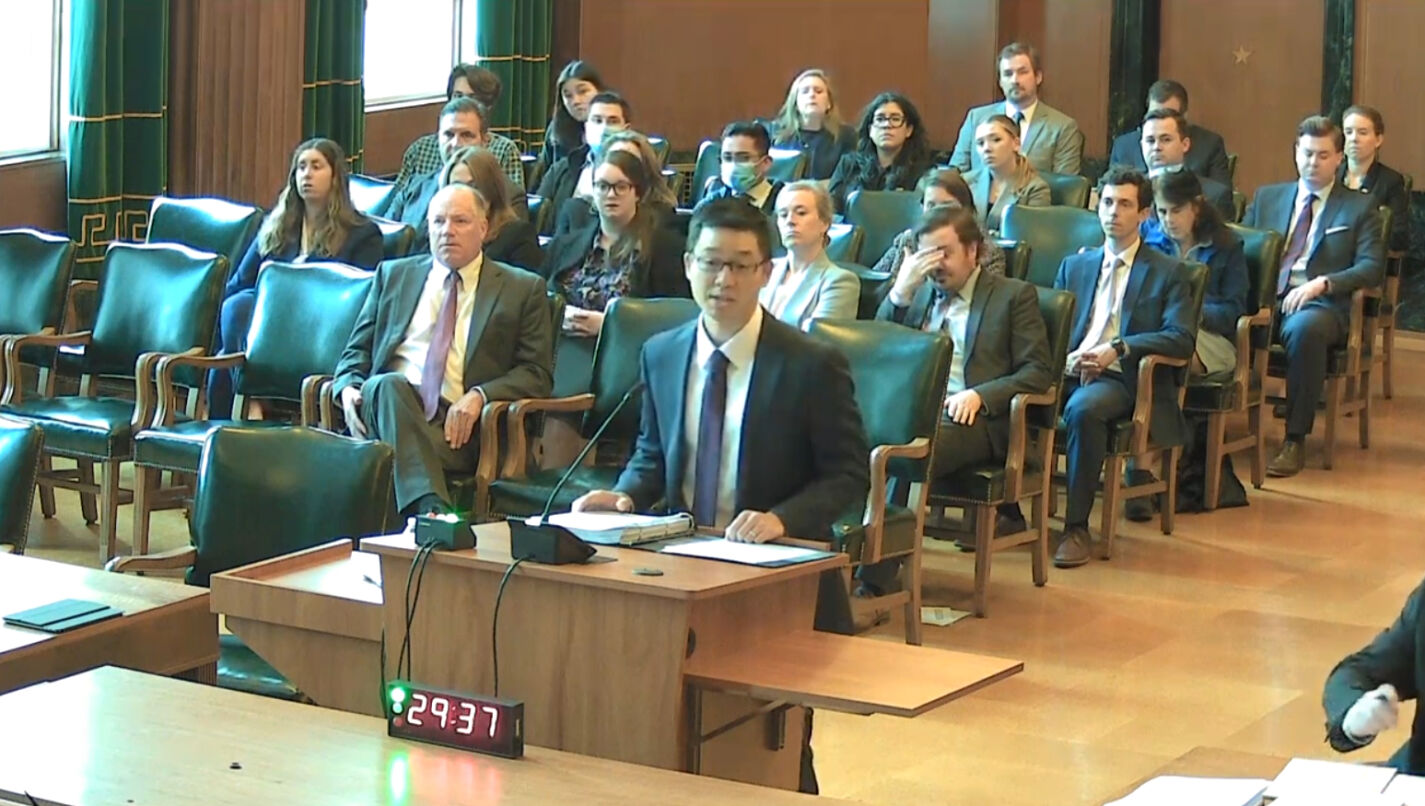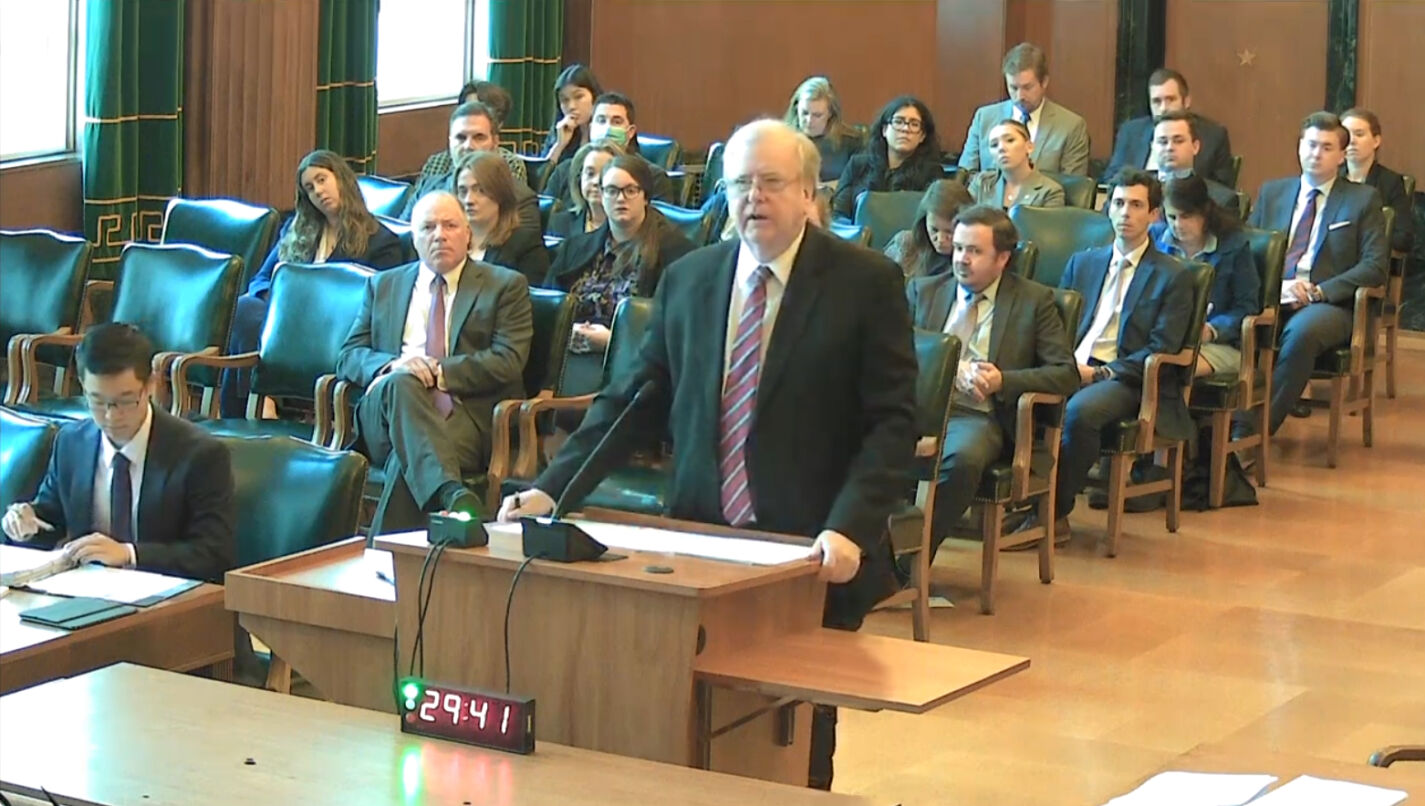The North Carolina Supreme Court heard arguments Tuesday in the case of an Alamance County racetrack that was forced to shut down during the pandemic.
In June 2020, Ace Speedway was shut down indefinitely by former N.C. Department of Health and Human Services Secretary Mandy Cohen, who now serves as director for the Centers for Disease Control and Prevention.
Cohen went to court to secure a preliminary injunction enforcing her “order of abatement.” She later dropped her legal complaint in September 2020, but racetrack owners continued to pursue their counterclaims challenging Cohen’s shutdown and are seeking to recoup some of the losses they incurred during that time.
State Solicitor General Ryan Park started the proceedings by saying how the world was thrust into a crisis during the spring and summer of 2020 with the COVID-19 pandemic, and elected officials, from then President Donald Trump to Democrat Gov. Roy Cooper, were forced to make a series of “excruciating” decisions based on the best available information between saving lives and preserving the healthcare system, temporarily restricting economic and other social activities.

State Solicitor General Ryan Park offers an oral argument at the state Supreme Court. (Image from Supreme Court of North Carolina YouTube channel)
“One of those decisions was the secretary’s choice to issue an abatement order, pausing Ace Speedway ‘s ability to host what were at the time some of the largest mass gatherings occurring anywhere in the country, which would have been illegal virtually anywhere in the country, including under similar executive orders issued by all of our neighbors, Georgia, South Carolina, Virginia, and Kentucky,” he said.
Justice Trey Allen raised concerns about the abatement order, which he says repeatedly references the governor’s emergency order. Under the Emergency Management Act, he said an enforcement provision states that the violation of an emergency order is a crime, and there is no civil enforcement mechanism.
“So, I have a concern that the order of abatement is essentially an attempt to enforce the governor’s order through some civil mechanism, even though the legislature didn’t give the governor the authority to enforce this order civilly,” he said.
Allen later mentioned a statute that gives municipalities the power to enforce ordinances, which includes a provision that allows criminal enforcement and a set of civil mechanisms that local governments can use.
“I don’t see that in the Emergency Management Act, and so, therefore, I have a concern that the legislature made a decision to limit the means of enforcement and that the abatement order is, to some extent, an effort to circumvent that limitation,” he said.
Justice Richard Dietz also had concerns about the situation since racetrack owners spoke out against Cooper because they resisted his order, essentially embarrassing him, which Dietz said led Cooper to order the government to target Ace Speedway and shut it down, even though there were other similar businesses engaged in the same sort of conduct that went unregulated.
“What’s going on here is you have government officials who are petty and say this particular business is standing up and others are not,” he said. “We want you to single them out, let’s target them, let’s punish this business and make a point, and what I’m saying is if there are facts that could prove that that’s correct, why wouldn’t that be enough to prove that what action they (the government) took was not reasonably necessary to promote some public good in this particular circumstance?”
Chuck Kitchen, attorney for Ace Speedway, agreed with Dietz that the racetrack was targeted for defying Cooper’s order to shut down.

Attorney Chuck Kitchen offers an oral argument at the state Supreme Court. (Image from Supreme Court of North Carolina YouTube channel)
“The governor actually sent letters to the board of commissioners and to the sheriff saying go shut down Ace Speedway, and the sheriff said no, I’m not gonna do it,” he said. “He went out and talked to them, but he said no, I’m not going to do it. So, what did the state do? They said we’re gonna go and issue an abatement order. We’re going to do a civil remedy to shut you down for violating my executive order.”
Justice Anita Earls pushed back at Kitchen.
“So, you’re saying that even if there was a public health problem with people gathering in these numbers, the state could not protect the public by stopping the gathering? The state could only criminally punish whoever is responsible for holding the event?” Kitchen replied no.
A decision on the case should be forthcoming in the months ahead.
In August 2022, a unanimous N.C. Court of Appeals panel ruled that Ace Speedway could move forward with a lawsuit against the state’s top health official. By that time, Cohen had left DHHS. The suit continued against current Secretary Kody Kinsley. The state Supreme Court agreed in March to hear Kinsley’s appeal of appellate judges’ ruling.
The brief recounts key details of the Ace Speedway shutdown. The track has a seating capacity of 5,000 spectators. Owners said they needed 1,000 paying customers at each race to break even. On May 23, 2020, the speedway conducted a race with 2,550 spectators. Two other races took place over the next two weeks — with attendance of 1,600 and 1,200 — before Cohen blocked further track operations.
Ace had consulted with the Alamance County health director, the local sheriff, and others before developing a plan to operate races while addressing concerns about COVID-19.